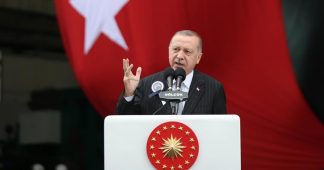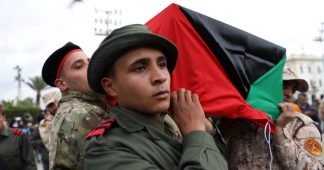Shifting dynamics on the ground in Libya have established Turkey and Russia as the main power-brokers in the conflict
by Guma El-Gamaty
Jan. 18, 2020
Since the outbreak of the Libyan revolution in 2011, which saw the intervention of NATO countries and the toppling of Muammar Gaddafi‘s regime, international involvement in Libya has gradually escalated. Although some Western states took a step back in recent years, there has been growing intervention by other countries such as the United Arab Emirates (UAE), France, Turkey, Russia and Egypt, which have all been looking to secure their own interests in the post-Gaddafi era.
The Tripoli-based Government of National Accord (GNA), which was formed in 2015 through a UN-brokered agreement approved by the Security Council, has struggled to establish control over the country. Although it is the only governing body which has been recognised by the United Nations, it has been undermined by foreign intervention. Formally, the GNA has been supported by the United States and the European Union, but its main backers in recent years have been Italy, Turkey and Qatar.
The UAE, Egypt and to a certain extent France and Russia have all been supporting renegade military commander Khalifa Haftar, who since 2014 has been trying to take power in Libya through military force. The military operation he launched in April 2019 to take over the capital Tripoli, has further complicated the situation.
The conflict has been dragging on for nine months and the dynamics of international involvement has been shifting rapidly with significant external factors coming into play.
Although Haftar pledged to take the Libyan capital quickly, he failed to do so and was forced to seek additional support from his allies. After a visit to Moscow last year, a few hundred Russian mercenaries, mostly from the private military company Wagner Group, were sent to aid his war effort. Over the past few months, their number increased to 1,500.
Read more at https://www.aljazeera.com/indepth/opinion/turkey-russia-libyan-conundrum-200118144000930.html











